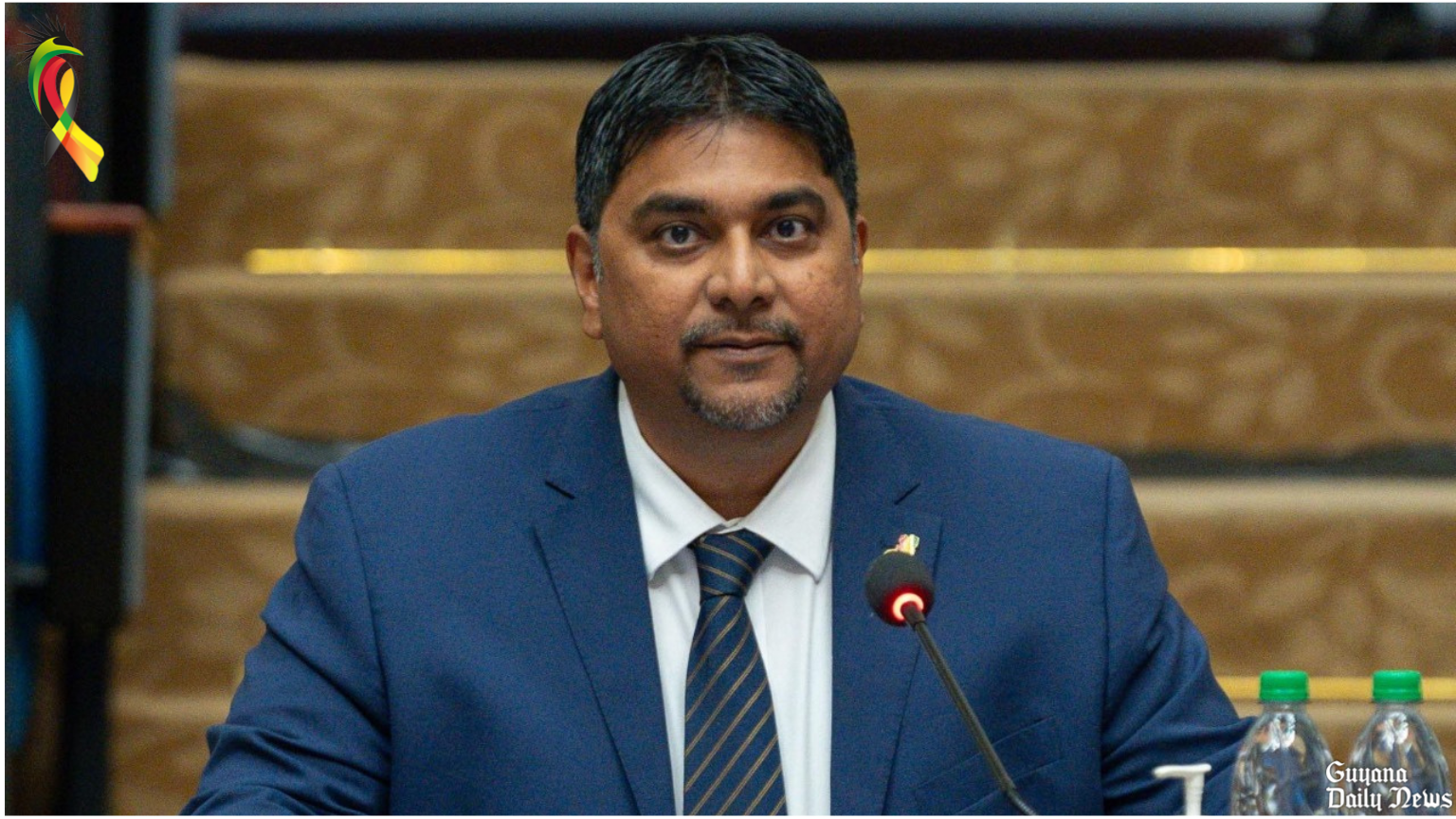

Member of Parliament and Attorney-at-Law Sanjeev Datadin has strongly criticised calls for the renegotiation of the Petroleum Agreement between the Government of Guyana (GOG) and ExxonMobil (EEPGL), dismissing such suggestions as legally unfounded and economically destabilising.
In a scathing response to an article by Christopher Ram in Stabroek News, the MP decried the continuous push to alter the terms of the contract, describing Ram’s position as an example of legal arguments that look good on paper but fail to account for the real-world implications of contract law and foreign investment.In his article published on January 5, 2025, Ram reiterated his stance that the government should renegotiate the deal, claiming that Guyana is not receiving a fair share of oil revenues.
However, the MP countered by highlighting the legal importance of the “sanctity of contract,” a principle he described as fundamental to maintaining a stable and predictable investment environment.
“Christopher Ram seems to find criticism real and imaginary in any idea or policy he does not agree with. His call to renegotiate the contract completely ignores the destabilising effects such a move would have on Guyana’s reputation as a safe and secure place for foreign investment,” the MP stated.
The MP, who has been an attorney for more than a decade, went on to argue that Ram’s position, while emotionally driven, overlooks the practical realities of international contract law and the risks of breaching established agreements. According to the MP, the sanctity of contract is the bedrock of legal relations globally, and any attempts to undermine this principle would result in catastrophic consequences for the country’s economy.
“Renegotiating the Exxon contract, based purely on feelings of unfairness, would send a signal to the international community that Guyana is unreliable when it comes to honouring agreements,” the MP continued. “It’s not a ‘religion’ in the courtroom, Mr. Ram; it’s a fundamental pillar of the global legal system.”
The MP also addressed the issue of the “stabilisation clause” in the agreement, which protects Exxon from financial losses caused by any amendments to the contract, including changes in laws or the Constitution.
He pointed out that any attempt to alter the deal without Exxon’s consent could result in the government having to pay Exxon compensation for any loss incurred.
“Ram’s arguments fail to recognise the effect of the stabilisation clause. If any change is made to the contract, the GOG would be obligated to pay Exxon the full value of any financial loss caused by the new terms,” the MP explained. “This is a reality that cannot be ignored.”
Although acknowledging that the contract may appear lopsided and in favour of Exxon, the MP stressed that legal contracts cannot be set aside simply because they seem unfair. The legal grounds for renegotiation must be based on legitimate claims of fraud, deceit, or mistake—none of which have been proven in this case.
“Where are the real legal grounds for renegotiation? The arguments presented so far are based on personal opinions, not recognized legal principles,” the MP asserted. “There can be no renegotiation without mutual consent. Pressuring or picketing for renegotiation is a form of duress, which would invalidate any changes made under such circumstances.”
Turning to the government’s response to the challenges posed by the oil contract, Datadin pointed to the Local Content Act as a proactive step to ensure that Guyana’s citizens and businesses benefit directly from the country’s oil wealth.
The Act has channelled billions into the local economy through partnerships with Guyanese businesses, thus maximising the country’s returns from the oil sector.“It’s a fallacy to argue that the government should focus solely on recovering a larger share through renegotiation,” the MP emphasised.“Guyana can achieve more by working together with the private sector. The combination of both public and private sector efforts is crucial to maximizing the benefits for the country.”
The MP concluded by calling for a more balanced and realistic approach to managing the oil sector, which respects both legal principles and the economic realities of the global market. He urged those pushing for renegotiation to offer constructive solutions rather than opportunistic rhetoric aimed at gaining attention.
“The Guyanese people are wise to this and will not be misled by those seeking their 15 minutes of fame,” the MP concluded.The 2016 agreement was signed under the APNU+AFC Administration while in office.
















